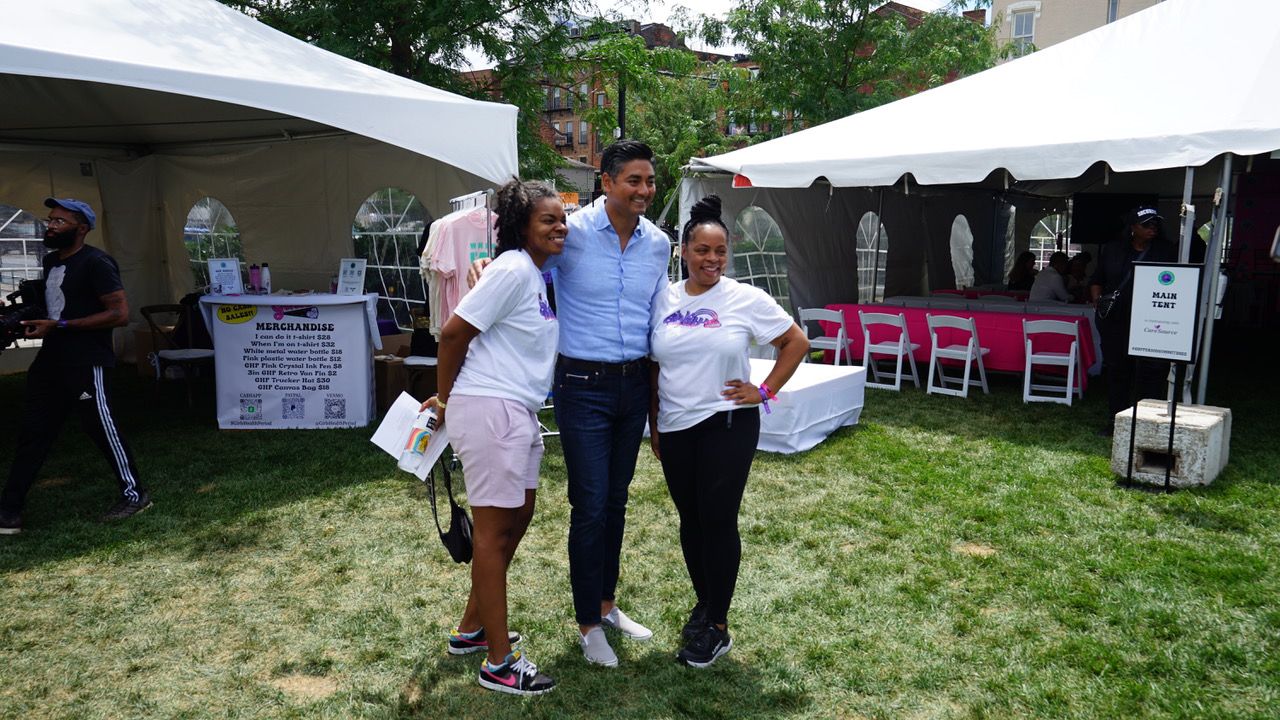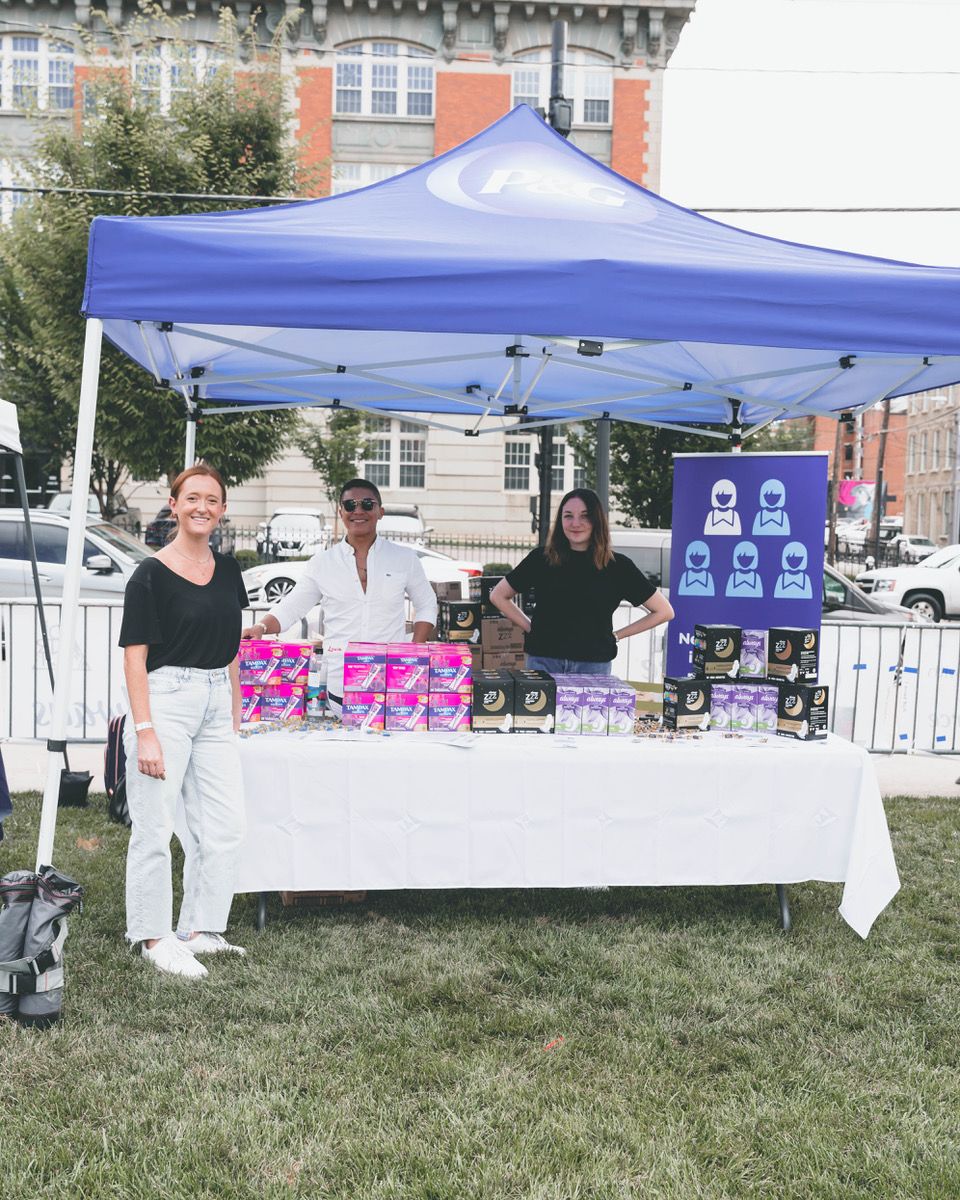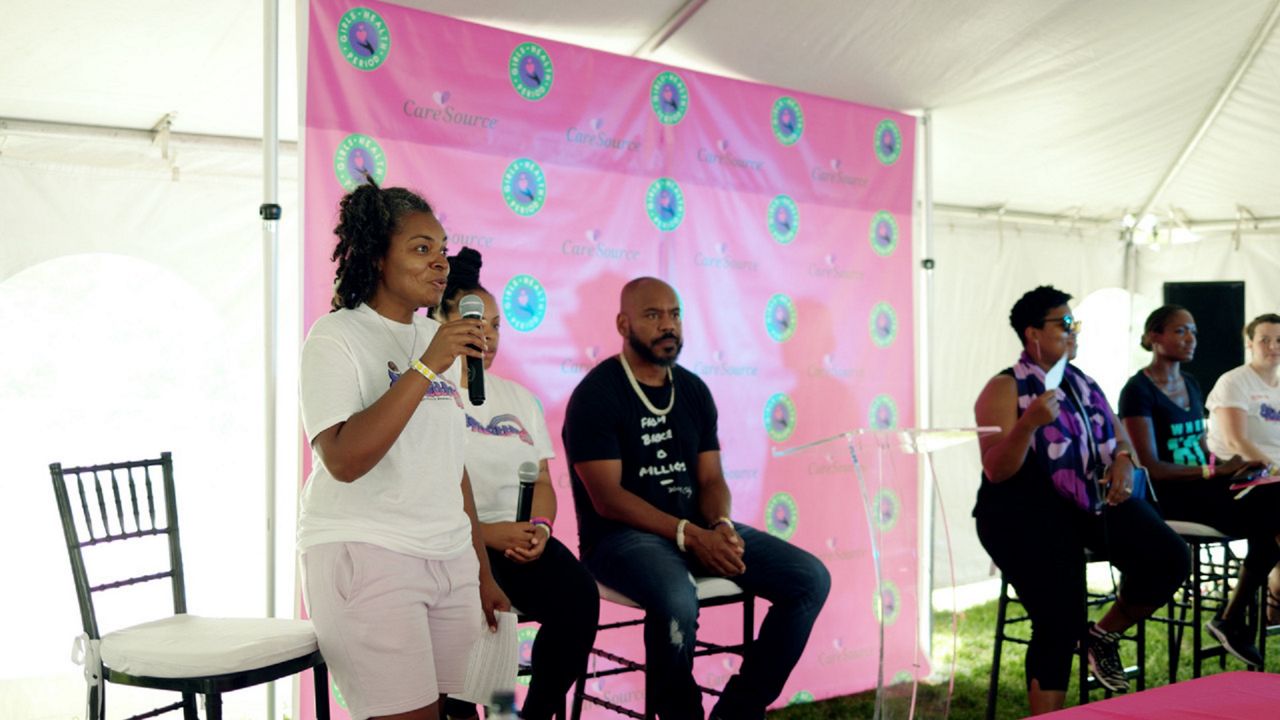CINCINNATI — Erikka Gray admitted to never thinking twice about period products while going to school growing up.
To those who don’t know, period products are things like tampons and pads that a person uses when they’re menstruating.
What You Need To Know
- The nonprofit Girls Health Period provides free period products and education to schools and community groups across greater Cincinnati
- Data shows as many as one in five girls in the United States have missed school to to a lack of access to period products
- Girls Health Period has provided more than 1 million period products since its inception in 2018
- Cincinnati-based Procter & Gamble and its Always brand partnered with Girls Health Period on the GHP Period Summit last year
Gray came from what she described as a relative place of privilege, so if she ever needed one, she could just ask a friend or family member or simply run to the store.
But not everyone has it so easy, said Gray, executive director of Girls Health Period.
In recent years, as many as one in five girls in the United States, ages 16 to 24, have missed school due to lack of access to period products. Always, a period product brand, conducted the study in Nov. 2017.
That number is closer to three in five girls in Cincinnati, Gray said.
Not going to school is bigger than just missing class time, Gray said. It’s also not being able to play sports, take part in extracurricular activities, go to work or just hang out with friends simply because they don’t have access to menstrual products.
To help eliminate what’s known as period poverty, Girls Health Period provides menstruation products and education to schools and other neighborhood groups.
Since its founding in 2018 by Brittani Gray, the organization has supplied pads to schools, and the school staff distribute them to the students in need.
Beyond handing out products, Girls Health Period wants to promote menstrual health and wellness. One way to do that, Erikka Gray said, is to talk about it openly.
There’s an upcoming Black History Month event on Saturday, Feb. 25 at Cream and Sugar Coffeehouse in Evanston. From 10 a.m. until noon, visitors can visit the Girls Health Period table, get a free cup of coffee or tea, and find out more about Girls Health Period’s work.
“It’s something that affects everyone,” Erikka Gray said. “Even if you don’t menstruate, you undoubtedly know someone who does. Maybe you’re a parent or a coach or even an administrator, so this is something we all have to discuss.”
Working to remove a stigma
Period poverty is most common for those living in low-income situations, Gray said. She noted period products aren’t inexpensive, especially now because of price inflation.
On Kroger’s website, a box of menstrual pads starts at $6.99.
It may not be a significant amount of money to most people, but to someone trying to decide between paying for food and medicine, it adds up, Gray said.
Period poverty isn’t just about money though. Sometimes, a student or someone else simply may not know where to find a tampon or pad in their moment of need.

“There can be a lot of shame around something like this,” Gray said. “If you don’t have them, you’re more likely to just say use whatever you can find — a paper towel or maybe a sock — then to step up and tell a teacher, or a coach, or a caregiver that you don’t have this very basic health care item you need.”
There have been instances where people have turned down free period products because they didn’t want to be seen with them, Gray said.
“They say they don’t want to walk around with pads or tampons because they don’t want anyone to see that. That shouldn’t be the case,” she added. “We want to make sure that access also comes with education.”
Girls Health Period started humbly by handing out products to “one or two schools” in Cincinnati in 2018, Gray said. But she said it “spread like wildfire” once school nurses and other administrators found out about the program.
Today, the organization serves more than 155 schools in Ohio, Northern Kentucky and other areas across the country, Gray said. It also provides products and education to group homes and support agencies throughout the greater Cincinnati region.
Cream and Sugar is one of four locations in Cincinnati where residents can drop off menstrual products for donation. Other sites are available on the Girls Health Period website.
In total, Girls Health Period has distributed more than 1 million menstruation products to date.
Girls Health Period hosted its inaugural GHP Period Summit in July. It was a one-day program in Cincinnati centered on menstrual health education for families, educators, community institutions, and athletic coaches.
Along with a collection of volunteers, the Girls Health Period team, with the help of Always brand, distributed product samples to self-identified young girls and women. As an inclusive organization, the nonprofit offered education to all, including the transgender community, Gray said.
“If you identify as somebody who menstruates, we’re going to treat you and educate you the same way as everyone else who needs our help,” Gray said.
Ensuring access to necessities
For their efforts, Girls Health Period has received recognition from Procter & Gamble since 2019 as part of the company’s Always Period Hero campaign. The program highlights individuals and organizations who’ve made significant contributions toward combating period poverty on a local level.
Always, owned by P&G, expanded the Period Hero program this past fall to include a representative from all 50 states.
Gray noted that the Cincinnati-based consumer product giant has been a major supporter since Day 1. She referred to P&G support as “insurmountable.”
“(They’ve) enabled us to make sure that when any school in our area calls us, we can answer right away,” Gray added.

Always has donated more than 160 million period products to people in need around the world since 2018. More than 900,000 result from the Always-Girls Health Period partnership, according to Louie Morante, Always' communications director for North America.
“In honor of Black History Month, we’re proud to recognize our long-standing partner and Always Period Hero Girls Health Period for their continued efforts in helping #EndPeriodPoverty in the local Cincinnati community,” Morante said.
In September, the Hamilton County Board of Commissioners voted to use funds to install more than 70 no-cost period product dispensers in public restrooms at county-owned buildings. The products are free for employees and residents as well.
Commissioner Denise Driehaus called the move a “small but meaningful step” toward addressing systemic gender inequalities. She noted that lack of access to period products continues to cause people who menstruate to miss work and other commitments, “all because we don’t treat period products as necessary as toilet paper or paper towels.”
Driehaus credits Girls Health Period with creating broader awareness about why “these basic necessities” need to be more readily available.
The plan is for Girls Health Period to remain focused on making sure students can stay in school, Gray said. However, she said they enjoy making partnerships that allow them to expand their mission.
More information about Girls Health Period and upcoming events is available on its website or by texting “GHP” to 949-TEAM-GHP (949-832-6447).
“Our mission is to make sure that every menstruator has access to the products they need and can bring their whole self to school, work and play,” Gray said.



